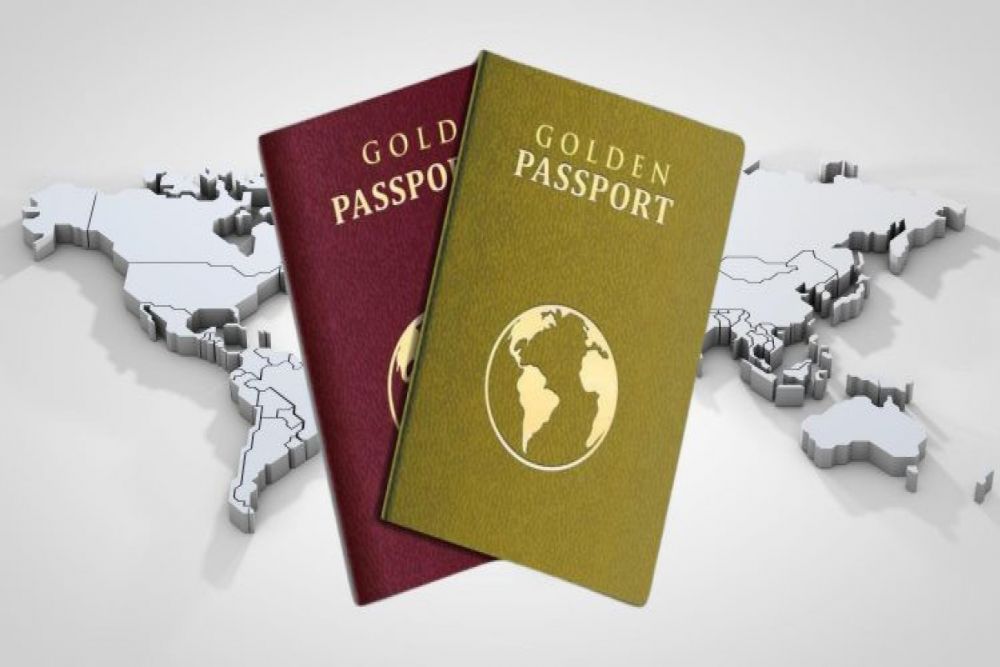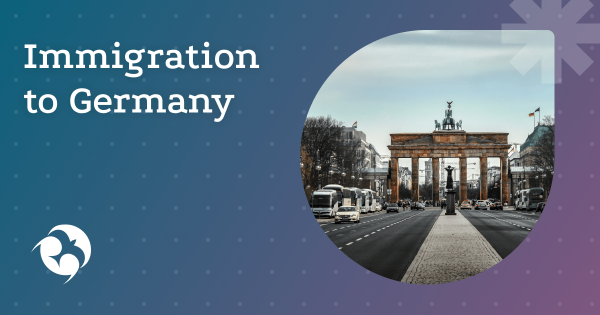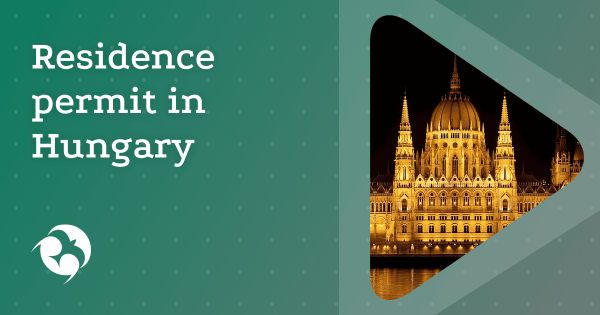What are “Golden Passports”?
The “golden passport” is the citizenship of a country obtained for monetary investments in its economy. This is a legal mechanism for legalization in another country without the need for a long stay on its territory. Such programs provide for a clearly state–regulated procedure for issuing passports in exchange for economic contributions in various forms, from direct donations to the budget to buying real estate or starting a business.
The main difference between investment programs and standard naturalization paths is a significant reduction in time frames and simplification of requirements. If traditional citizenship through naturalization requires living in the country for at least 3-10 years, studying the language and culture, and passing appropriate exams, then a “golden passport” can be obtained in just 2-6 months.
Each program has its own specifics regarding the required amount of investments, the time frame for registration and the conditions imposed. It is important to note that all countries provide for a thorough due diligence check of the applicant, including checking for the absence of a criminal record and the legality of the origin of the capital.
Investment migration and its forms
Investment migration is a legal mechanism that gives foreign citizens the opportunity to obtain residency or a passport through financial investments in the economy of the host country. Such opportunities are divided into 2 types: citizenship (CBI) and residence permit for investment (RBI). The first option provides a passport and full rights of a citizen, the second – temporary or permanent residence with the possibility of extension.
Advantages for applicants:
- Global mobility;
- Tax benefits;
- Risk insurance;
- Access to markets and doing business.
Countries with Golden Passport programs
Investment citizenship programs operate in 16 jurisdictions, offering various conditions for high-net-worth applicants. The Caribbean States remain the leader in the number of participants, accounting for 65% of all issued passports. European countries (despite stricter requirements) retain their premium status due to access to EU markets.
Golden Passports and Investment Visa Programs for Russian/Belarusian Citizens
|
Country |
Program name | Minimum investment amount | Duration of receipt | Description |
| Türkiye | Turkish Citizenship by Investment Program | $400,000 | 3-6 months | Launched in 2017. The most popular option is buying real estate. There are other options: investing in companies ($500,000), a bank deposit ($500,000), buying government bonds ($500,000). Investments must be kept for at least 3 years. |
| Egypt | Egypt Citizenship by Investment Program | $250,000 (non-refundable donation) | 3-6 months | There are 4 investment options available: donation ($250,000), purchase of real estate ($300,000), company formation ($350,000 + $100,000 donation), bank deposit ($500,000). Spouses and children under 21 may be included in the application. The spouse receives citizenship 2 years after the main applicant. |
| Vanuatu | Vanuatu Citizenship Development Support Programme (DSP) | $130,000 (for one applicant) | 2-3 months | One of the fastest citizenship programs in the world. The investment is a non-refundable donation to the Development Fund. For a family of 4 – minimum $180,000. |
| Sierra Leone | Sierra Leone Citizenship by Investment Program | $140,000 | 90 days | The program launched in January 2025. The passport provides visa-free travel to 66 countries in Africa and Asia. For an additional $10,000, you can officially change your first and last name. |
| Cyprus | Permanent Residence in Cyprus by Investment | 300,000€ | 9 months | You can invest in real estate, business or securities. Permanent residence permit holders do not pay taxes on foreign income, dividends and capital gains. After 8 years, you can apply for citizenship. |
| Andorra | Andorra Residence Permit by Investment | 600,000€ (total amount) | Initial for 2 years. Extension up to 10 years. | A deposit of €47,500 is required for the applicant and €9,500 for each dependent family member. The minimum property value is €400,000. |
| USA | EB-5 Investor Visa | $800,000 | In 5 years | Allows you to obtain an immigrant visa and a green card, and after 5 years – US citizenship. The minimum investment amount was increased from $500,000 to $900,000 in 2019, and then adjusted to $800,000. |
| UAE | Residence visa in UAE | $204,000 | Not specified | The visa validity period depends on the investment amount. 2 years for investments of $204,000 and above, 10 years for investments of $544,500 and above. Residential and commercial real estate in Dubai or Abu Dhabi is suitable. Entrepreneurs can also obtain a visa by investing in a business of $136,000 (500,000 AED). |
| Spain | Golden Visa Spain (PROGRAM CLOSED) | – | – | ATTENTION: the program is closed. Applications are no longer accepted. The full text of the decision was published on January 3, 2025 in the Spanish National Gazette (BOE). The changes came into force on April 2, 2025. |
For those who have a second passport (besides RF/RB)
|
Country |
Program name | Minimum investment amount | Duration of receipt | Description |
| Greece | Golden Visa Greece | 250,000 € | 3-12 months | Real estate investment remains the main option, but from 2025 regional restrictions have been introduced: in Athens, Thessaloniki, Mykonos and Santorini the minimum amount has been raised to €800,000. Alternatives: investments in funds (€400,000) or bank deposits (€500,000). |
| Portugal | Portugal Golden Visa | 250,000€ | 12–24 months | From 2023, investments in real estate are excluded. Available: venture capital funds (€500,000), support for cultural heritage (€250,000) or scientific research (€500,000). |
| Hungary | Guest Investor Residence Permit | 250,000€ | Suspended | Available options: investment in real estate funds (€250,000) or charitable contributions (€1 million). |
Golden Passport and Residency Programs for Citizens of Other Countries
|
Country |
Program name | Minimum investment amount | Duration of receipt | Description |
| Malta | Citizenship by Investment (MEIN) | 750,000€ | 12–36 months | Fast track procedure (12 months residency): contribution to the National Development Fund of €750,000 + purchase of real estate from €700,000 or rent from €16,000/year.
Standard procedure (36 months): €650,000 contribution. Mandatory charitable contribution of €10,000. |
| Antigua and Barbuda | Citizenship by Investment (CBI) | $230,000 | 3-6 months | Contribution to the National Development Fund (NDF) for a family of up to 4 people. Alternatives: real estate ($300,000), business ($1.5 million). |
| Grenada | Grenada Citizenship by Investment | $235,000 | 4-6 months | Donation to the National Transformation Fund. Real estate investment from $350,000. |
| Dominica | Dominica Citizenship by Investment | $200,000 | 6-9 months | Options: Contribution to the Economic Diversification Fund (EDF) or investment in approved real estate. |
| Saint Kitts and Nevis | Citizenship by Investment Program | $250,000 | 3-6 months | Options: contribution to Sustainable Island State Contribution (SISC), real estate (from $325,000), business (from $400,000). |
| Saint Lucia | St. Lucia Citizenship by Investment | $240,000 | 4-8 months | Contribution to the National Economic Fund (NEF). Alternatives: real estate ($300,000), bonds ($300,000), business ($1 million). |
| Malta (residence permit) | Global Residence Program (GRP) | 275,000€ | 3-4 months | Purchase of real estate or rent (from €9,600/year). |
| Malta (permanent residence) | Malta Permanent Residence Program (MPRP) | 375,000€ | 6-12 months | Purchase of real estate + contribution to the state fund of 30,000€ (upon purchase) or 60,000€ (upon rent). Mandatory charitable contribution of 2,000€. Permanent residence requires proof of assets from 500,000€ |
The process of obtaining “Golden Passports”
The mechanism for obtaining investment citizenship is standard, but the procedures vary depending on the country. On average, the procedure takes from 45 days to 36 months. The key condition remains the passage of multi-level checks on the legality of capital and the absence of a criminal past.
In general, the algorithm for obtaining an identity card is as follows:
- Program selection and document preparation. The primary stage includes an analysis of investment thresholds, tax implications, and visa-free opportunities. At the same time, a package of documents is being collected (notarized copies of passports, certificates of absence of criminal records, confirmation of the source of funds). In case of purchase of real estate, an additional report on the market value of the property and a purchase and sale agreement are required.
- Due diligence and payment of fees. All CBI market member countries conduct due diligence checks on applicants through accredited agencies. The cost of verification ranges from $5,500 to $15,000. After prior approval, the investor contributes a portion of the amount (usually 25-50% of the total contribution).
- Main investments and application review. The financial conditions depend on the selected option. Non–refundable contributions to public funds dominate in the Caribbean region, while combinations of donations and real estate purchases dominate in Europe. The documents are sent to the authorized body responsible for reviewing the request.
- Passport issuance and citizenship registration. After the application is approved, the investor receives a naturalization certificate and submits biometrics for passport production.
Due Diligence of candidates
The Due Diligence process is a key stage that determines whether an investor will receive citizenship or refusal. This is a multi-level mechanism that includes automated checks, manual analysis, and the participation of international organizations.
The selection criteria are universal for most jurisdictions:
- Legality of sources of capital. Confirmation of the origin of funds through bank statements, tax returns, or asset purchase and sale agreements.
- No criminal record. Checking against Interpol databases, national registries, and sanctions lists.
- Reputational risks. Analysis of connections with politically significant individuals, participation in questionable business schemes, or negative mentions in the media.
Documents for verification
The required documents vary depending on the country, but the basic package includes:
- Certified copies of passports and birth certificates;
- Certificates of absence of criminal record (valid for 3-6 months);
- Medical reports (including an HIV test for people over 12 years of age);
- Confirmation of the source of funds. These can be account statements, contracts, and tax returns.
Alternatives: Residence permit for investments with the prospect of naturalization
The Residency for Investment (RBI) program is another popular service among investors who prefer a step-by-step path to citizenship. Unlike the “Golden Passports”, which provide a passport immediately, the RBI allows you to obtain a temporary status with the subsequent possibility of naturalization after 5-10 years. The key advantage is flexibility. The investor retains the main passport, minimizing tax and legal risks.
The proposals of European countries can be striking examples.:
- Portugal closed access to residency through the purchase of real estate in 2023, but retained the opportunity to invest in funds and create jobs (the naturalization period is 5 years from the date of application).
- Greece offers one of the lowest thresholds – 250,000€ in commercial real estate. Naturalization is possible after 7 years of residence.
Criteria for choosing a suitable program
Choosing a country to obtain a second citizenship requires analyzing several key parameters, each of which directly affects the effectiveness of investments and the speed of obtaining documents.
- Finance. Minimum threshold (varies from $130,000 to €3 million). Type of investment (non-refundable contributions, purchase of real estate, combined schemes). Hidden expenses (Due Diligence, administrative fees, real estate tax);
- Time. Registration period (from 60 days to 36 months). Attachment blocking period (3-5 years);
- Available privileges. Visa-free access to travel around the world or tax benefits;
- Inclusion of family members. Cost and possible restrictions for close and distant relatives;
- Legal risks. Stability of the chosen program and tax consequences;
- Exit from investments. Repayment terms, investment diversification, and possible risks.

- We will answer all your questions
- We will help you choose the best option
- We will guide you through every step or do everything for you
Forecasts for the development of investment citizenship
According to experts, the market of “golden passports” may reach $100 billion by 2030 with an annual growth of 9-12%. The main reason is geopolitical instability, tax reforms in the EU and the USA, and the growing demand for global mobility.
The Caribbean will retain its leadership in accessibility, but competition from new countries will increase. The rejection rate in the Caribbean region could rise to 15% by 2026 due to increased financial measures to combat money laundering.
Europe will continue to impose new restrictions and move into the premium segment. Countries with existing programs plan to reduce the quota for issuing “Golden Passports” and raise the threshold for minimum injections.
Asia and Africa will become new growth points. For example, starting in January 2025, Sierra Leone offers to obtain “golden” citizenship (one of the options is the purchase of gold).
Current risks include the closure of existing programs (for example, Cyprus and Bulgaria). Several countries in the Middle East are also at risk. Against the background of such trends, it is important for a future investor to diversify investments and choose opportunities with transparent conditions for exiting investments.












